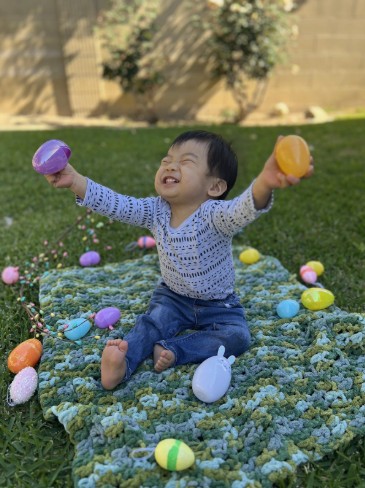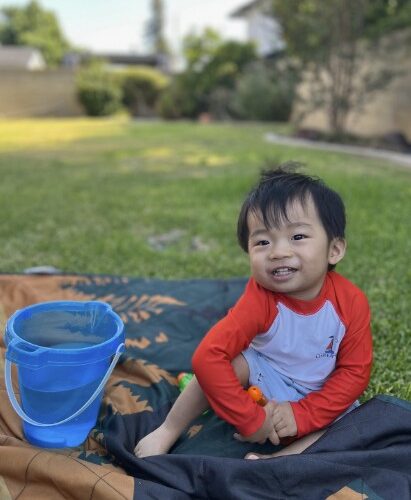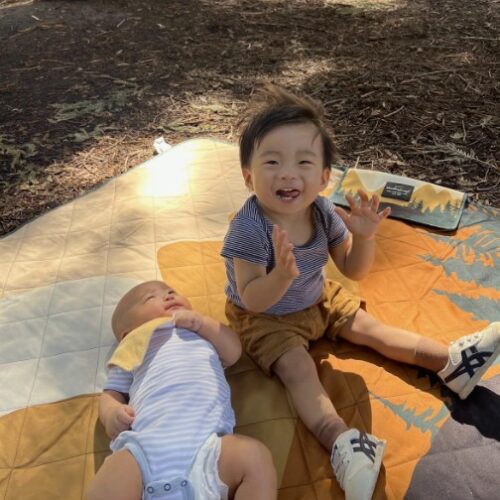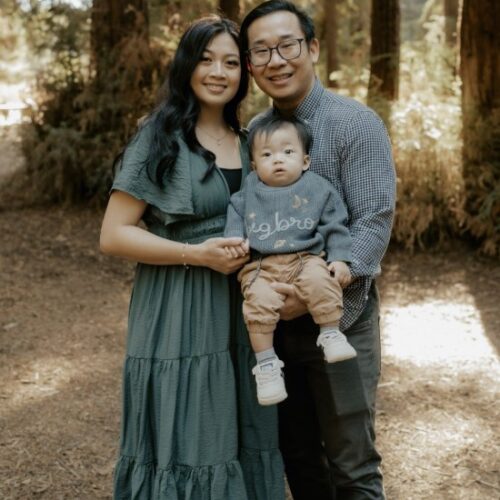When Abby and Brian Quach welcomed their first child, Kenji, he looked like any healthy baby. He met his early milestones, had a contagious laugh, and filled their home with joy. But from the very beginning, feeding, reflux, and constipation were a struggle. If the bottle wasn’t held at the perfect angle, Kenji would projectile vomit. Even as a first-time mom, Abby’s instincts told her something deeper was going on with her son. As she put it, “parenting can’t be this hard for everybody else.”
At ten months, Kenji’s symptoms escalated. He developed unusual shaking, stopped taking his bottle, and began losing skills he had once mastered. After being told it would take months to see a neurologist, Abby called the office daily to check for cancellations. Trusting her instincts that something was very wrong, she ultimately decided to take Kenji to the ER.


That decision changed everything.
Doctors admitted Kenji for a week-long hospital stay. During that time, he underwent an MRI, EEG, swallow studies, metabolic labs, and genetic testing. Abby fought tirelessly for every single one of these tests (especially genetic testing) drawing on AI research to make her case. Her persistence ensured Kenji’s symptoms were fully investigated. Kenji ultimately received a clinical diagnosis of Leigh syndrome (mitochondrial Complex I defect), and subsequent genetic testing identified a mutation in the MT-ND6 gene as the cause.
The diagnosis brought mixed emotions. Abby was relieved to have a name for Kenji’s illness so the family could research and plan. She was also heartbroken. There is no cure. Testing also showed that Abby is a carrier.
On top of everything else, Abby was already pregnant with their second child. Afraid of the unknown, Abby was told she could terminate her pregnancy, or wait until her child was born to test for Leigh Syndrome, as there is currently no way to accurately test for mitochondrial DNA-related Leigh syndrome in utero. They decided to wait, regardless of a potentially devastating outcome.
As Kenji’s condition progressed, he went from a 10-month developmental level to that of a 1–3 month old. He lost his ability to swallow, laugh, and even cry. But with a multidisciplinary team including neurology, GI, genetics, metabolics, OT, PT, and feeding therapy, he has been steadily regaining some of these skills. He still relies on a G-tube for total nutrition, but after passing a swallow test, he now enjoys tasting purees, something the family was told would likely never happen.


One of Abby’s most cherished moments was the return of Kenji’s laugh. At first, it was faint and different. But over time, it came back. That precious sound now fills their home daily, a reminder of his resilience.
At twenty-one months old, Kenji is kind-hearted and loving. He enjoys library story time, stroller hikes, playing with plastic eggs, and his family. He is beginning to use speech (a few “B” words like “ball” and “boo”) and is learning signs such as “more” and “please.” Recently, he even signed “break time” to his baby brother Amari after a long crying spell, showing his growing voice and gentle spirit. Testing has confirmed that Amari does carry the same variant as Abby and Kenji. Some carriers are asymptomatic (like Abby), while others (like Kenji) have significant symptoms. At a few months old, Amari’s trajectory is still unknown.
Abby and Brian draw their strength from Kenji’s determination, the support of family and friends, church, and their faith in God. Doctors gave Abby the sobering statistics of an average life expectancy of just 2.4 years for Leigh syndrome, with many children passing before age three. Kenji has already defied expectations, showing his strength and will to thrive. The family is eager to explore clinical trials and new research that may bring more hope.
Abby’s advice to newly diagnosed families is simple: “Lean into your support group” and take it “one day at a time.”
Kenji’s journey is not only about the challenges of Leigh syndrome, but also about the power of persistence, resilience, and love. Every regained milestone, every laugh, and every word is proof that hope can be found in the smallest victories. By sharing Kenji’s story, the Quach family hopes to shine a light on this rare condition and remind others: no one is walking this journey alone.




